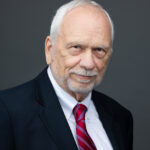 People are challenged to take action while immersed in an environment of fear brought on by a contagious and deadly virus that enveloped the globe in just two months and compounded by economic and social upheaval, turning the world upside down.
People are challenged to take action while immersed in an environment of fear brought on by a contagious and deadly virus that enveloped the globe in just two months and compounded by economic and social upheaval, turning the world upside down.
What is fear and why should we be concerned about it? Merriam-Webster defines fear as an unpleasant often strong emotion caused by anticipation or awareness of danger.
Like it or not, COVID-19 has affected everyone but the privileged few, drastically changing lives and expectations. Virus-driven change brought illness and death, job loss, depletion of savings, devaluation of retirement IRAs, a longing for normal times which may never return, and fear both of what is transpiring and what may come. Massive unemployment not seen since the Great Depression of the 1930s, real or imagined separation into what is deemed essential and what is not, accelerated transition to virtual work, conflicting guidance, and what some might call civil disobedience. The COVID-19 served as both a catalyst for, and an accelerant of, change. No one can say for sure right now what the longer-term aftershocks of COVID-19 will be.
Knowledge professionals that worked in traditional offices have fared the best so far, especially if services provided were deemed ‘essential’ in nature. After all, many businesses, business functions, and processes have continued, especially those where computers are integral to the services provided. Others like restaurants, theaters, dental and medical offices, hospital emergency departments, elective medical procedures, automobile sales, travel services, rental cars, and airlines have not been so lucky. In less than 60 days, those employed in these businesses saw their world change completely. Fear? Will I or my loved ones die; will I have a job when this is over?
For those who have fared well, new expectations are emerging. For example, now that I have experience with telework and have been able to continue my contribution with little if any degradation, the old commuting time and expense no longer need to be tolerated. People now expect to telework.
Expectations may go even further. A recent review of professional job openings revealed a large number of high paying positions requiring new knowledge and skills. Examples include Data Scientist and continued expansion of risk management opportunities. Of course, one would need to have been omniscient to be positioned for post-COVID-19 world with these new skills, or more likely one is faced with loss of what were once traditional careers, with no time to retool a career.
Consumer expectations are reportedly changing as well, a news article reported that 40% of those surveyed do not plan to buy anything from China. Are they fearful of COVID-19 spread by products? Or are people blaming China for COVID-19?
Think of the fright of suddenly dying from COVID-19. Think of the terror of being suddenly unemployed, with the sector you were employed in devastated by the economic effects of COVID-19, with no jobs now and none in the foreseeable future. These examples describe fundamental fears of humankind.
You have just come face to face with risk. Perhaps it is time to rethink almost everything you do, everything assumption you make, every decision you make, in terms of risk.
The oldest and strongest emotion of mankind is fear, and the oldest and strongest kind of fear is fear of the Unknown. H.P. Lovecraft
After all, your mortgage company does, your life insurance company does, and so does your automobile insurance company. And let’s not forget, the mutual fund managing your retirement funds, well, they think in terms of risk too.
As Tom Cruise’s character Vincent in the movie Collateral said, “….Now we gotta make the best of it, improvise, adapt to the environment, Darwin, s*** happens, I Ching, whatever man, we gotta roll with it……….”
Risk is no longer the province of business, non-profits, and government. Of course, not all risks can be eliminated, avoided or successfully mitigated. But, managing risk is the new currency, and you can learn how to manage the risks you face in your personal and professional lives. Seek information, learn the language of risk, apply the learning to your life and your profession. After all, risk is not going out of fashion anytime soon.
- Toney’s career involves the collection and analysis of data and information, spanning the continuum from intuitive, to qualitative and quantitative. He has an undergraduate degree in business and a graduate degree in behavioral science with an emphasis in statistics.
Bio:
His career has been enriched through education, training and experience beginning in the early 1970’s as an investigator, and later as economist, statistician, operations researcher, adjunct professor, business owner, newsletter publisher, consultant, quality award examiner, risk and QA manager, and contractor.
The common thread throughout this time has been gathering, reducing, assessing, summarizing, and presenting findings to enable decision making. With the arrival of COVID-19, it was recognized that methods and tools used for decision making in a business setting, particularly involving risk, can be adopted to individuals.
- Toney is also an aspiring business fiction writer where his future works will be published on vucanites.com.